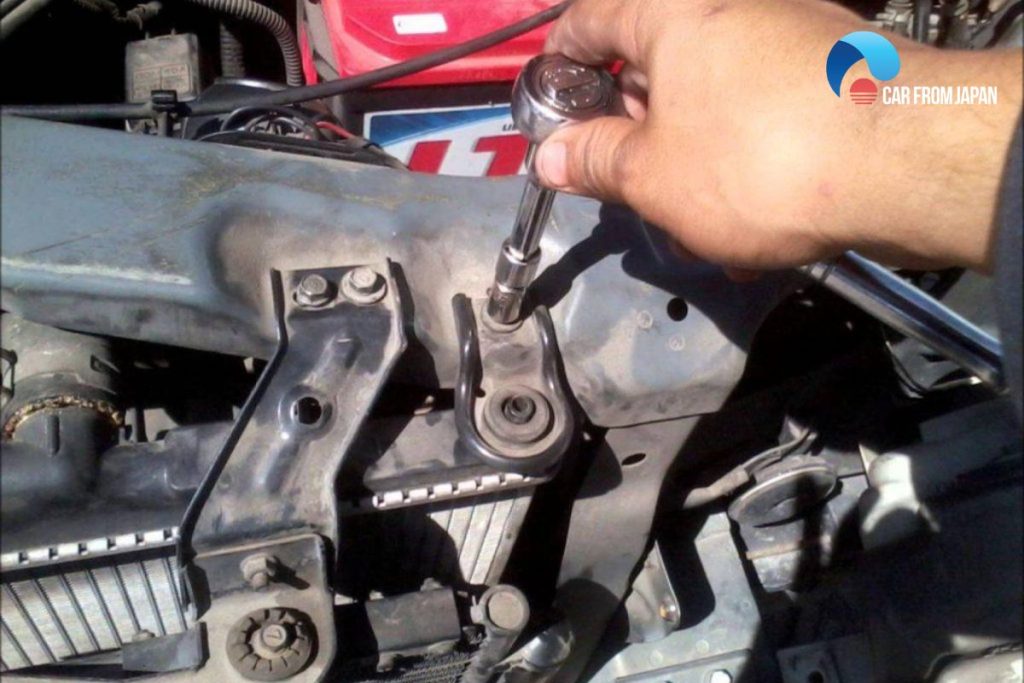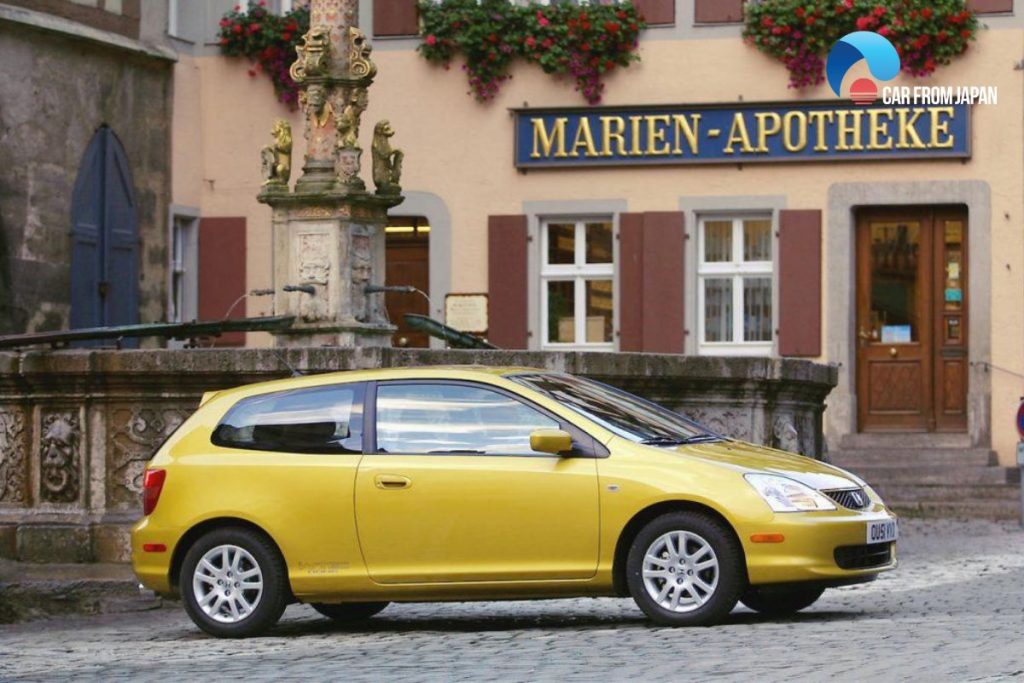Engine overheating is dangerous in many senses. Not only is it unsafe to drive under this condition but also can cause permanent damage to the engine.
The Honda Civic overheating is one such problem that many Honda owners have to deal with. It mostly occurs in models between 1990 and 2005.
Contents
- Honda Civic Overheating: The Causes and Solutions
- FAQs on Overheating Honda Civic
- Why does my Civic only overheat at highway speeds, not in traffic?
- Why does my temperature gauge spike briefly and then normalize while driving?
- Do certain Civic engines have head gasket weak spots that lead to overheating?
- Why does my Civic’s cooling system seem fine until I turn on the AC?
- Is it true that older Civic models are more prone to overheating after timing belt service?
- Final Words
Honda Civic Overheating: The Causes and Solutions
The internal combustion engine while burning fuel to generate power will make excess heat. If not cooled down in time, the engine will overheat, causing the risk of fire and explosion.
Overheating is one of the most dangerous engine errors that drivers need to be aware of during vehicle operations. Additionally, the excessive heat in the car engine can warp the cylinder block or head, leading to an expensive repair.
There are plenty of components that can cause this 2002 or 2001 Honda Civic overheating issue. We will discuss the most frequent ones.
The radiator
Replacing the radiator can solve the overheating Honda Civic issue because a clogged radiator causes this problem by not allowing the water to flow properly. Clean the radiator and fill it with antifreeze.
Keep the cap open and warm up the car to see if the water is flowing properly. Bubbles in the water indicate a head gasket problem. Otherwise, just seal the radiator with a new radiator cap.

Coolant leak
If the car is eating up an excessive amount of coolant than it should be, then it must be going somewhere. Figuring out and fixing the problem will solve the Honda Civic running hot trouble.
We must say that the common cause of Honda Civic overheating comes from the coolant. When the engine creates heat, the coolant will help your engine cool down. The fluid is then cooled by the fan, transported to the tank, and recirculated back to the engine.
When the coolant has problems such as leakage, blockage, condensation, or too low compared to the standard,… will cause the cooling process to be interrupted, and cause overheating of your car.
The antifreeze can end up either in the ground through a leak or into a component. If you discover small puddles of sweet-smelling liquid on the ground, there must be a leak somewhere.
Look into the heater core if you find the passenger floor feels damper than usual or the air in the car contains a high amount of humidity.
The coolant can also get inside the engine, which is really bad news. Use a dipstick to see if the oil looks like a milky liquid.
There is nothing to worry about if it looks like regular oil. But, a milky color indicates that oil and coolant have been mixing in the engine and you have to replace it to fix the problem.
Issues with a head gasket
The antifreeze can go into the combustion chamber too. In that case, there will be sweet-smelling white smoke coming off the exhaust system.
Also, the smoke will feel extremely humid when coming out of the exhaust pipe. All these symptoms point to one component – the head gasket.

Also, a compression test on the cylinders can lead you to the head gasket issue. Find the pressure in one cylinder is lower than the rest.
It must be a bad head gasket that causes Honda Civic overheating by either pumping compression into the cooling system or burning the water in the engine.
Read More: Learn the Hstory of Subaru’s Head Gasket Issue
The thermostat
The thermostat is a part of the cooling system, coordinating the cooling solution. When the engine temperature reaches a certain threshold, the thermostat will open to allow cooling water to flow to engine parts.
Therefore, when the engine is overheated, causing the thermostat to be stuck, the coolant fluid will not be distributed to the engine to cool down, causing overheating in the engine.
If you use a sealant in the coolant system, it will likely have brown gunk that can smudge the thermostat.
An overheated thermostat is damaged, so it requires replacement. No matter what the source of the problem is, an overheated engine means the thermostat is already out of order.
Low engine oil
Low levels of engine oil can also cause the vehicle to overheat. Automotive oil is responsible for lubricating the internal components of the engine, helping to reduce friction (reducing wear), and cooling the engine (reducing overheating).
Therefore, if the car is lacking in engine oil, the internal components of the engine will not be lubricated and cooled, leading to the car overheating.
In this case, you should check the engine oil regularly and add the oil in time if the oil level is low compared to the recommended standard. Alternatively, if you detect an oil leakage, you should handle it as soon as possible.
Watch more in this video from Jabo The Mechanic to learn more about the Civic overheating!
FAQs on Overheating Honda Civic
Why does my Civic only overheat at highway speeds, not in traffic?
This suggests a clogged radiator or restricted coolant flow, high-speed airflow should cool the system, but if heat exchange is blocked, it builds up faster than it can be released.
Why does my temperature gauge spike briefly and then normalize while driving?
This can happen if the thermostat is sticky or opening late — allowing temps to rise quickly before suddenly dropping as coolant finally circulates.
Do certain Civic engines have head gasket weak spots that lead to overheating?
Yes. Some D-series and K-series engines are known for head gasket failures around 150k+ miles, especially if regular coolant flushes were neglected.
Why does my Civic’s cooling system seem fine until I turn on the AC?
AC adds load and engages the condenser fan. If the fan isn’t working or if the condenser is clogged, it can reduce radiator airflow and cause temps to rise quickly.
Is it true that older Civic models are more prone to overheating after timing belt service?
Yes. If the water pump (usually replaced during timing belt jobs) is not reinstalled properly or the belt is misaligned, coolant circulation can be compromised.
Final Words
Now you’ve grasped several common roots of the Honda Civic overheating problem. Hope you will find this piece of information insightful!
For more Car maintenance tips, follow Car From Japan today!




I’m learning the hard way ’01 – ’05 Civics have head gasket issues that do not present normally. I’m a very experienced hobbyist mechanic, and helping my son choose a beautiful 05 Civic EX SE coupe, inspected and test drove the car thoroughly. And in subsequent weeks, my son and I experienced mystery coolant loss/overflowing coolant bottle that was slightly helped by careful bleeding and installing missing clamps on the overflow hose; also replaced thermostat (had been installed with weep hole down), fan switch, radiator cap. Couldn’t be the head gasket: no oil in coolant and vice versa. No bubbles in radiator neck even when revving. No white smoke under heavy load. Radiator pressure test no drop, overnight high pressure barely any drop and no coolant forced into cylinders. Can drive for a week around town, or a day of hard highway driving with no over heat until next day. Going back through PO repair records, found water pump replaced 3x in past 2 years… Eventually diagnosed: only occasionally and only under extreme load/RPM very small amounts of exhaust gas are forced into the coolant, displacing it; then upon cool-down not enough coolant is withdrawn from the overflow tank. Examination of the head bolts showed (3) with actual clearance between the washer and head, but the threads well anchored in the block. Assume washers not hard enough and “squashed;” also impossible to tell if head warped from overheating. New head bolts/washers and 5 extra lb./ft torque improved the situation a lot, but I have a reman head on the way and am replacing head gasket when it gets here.